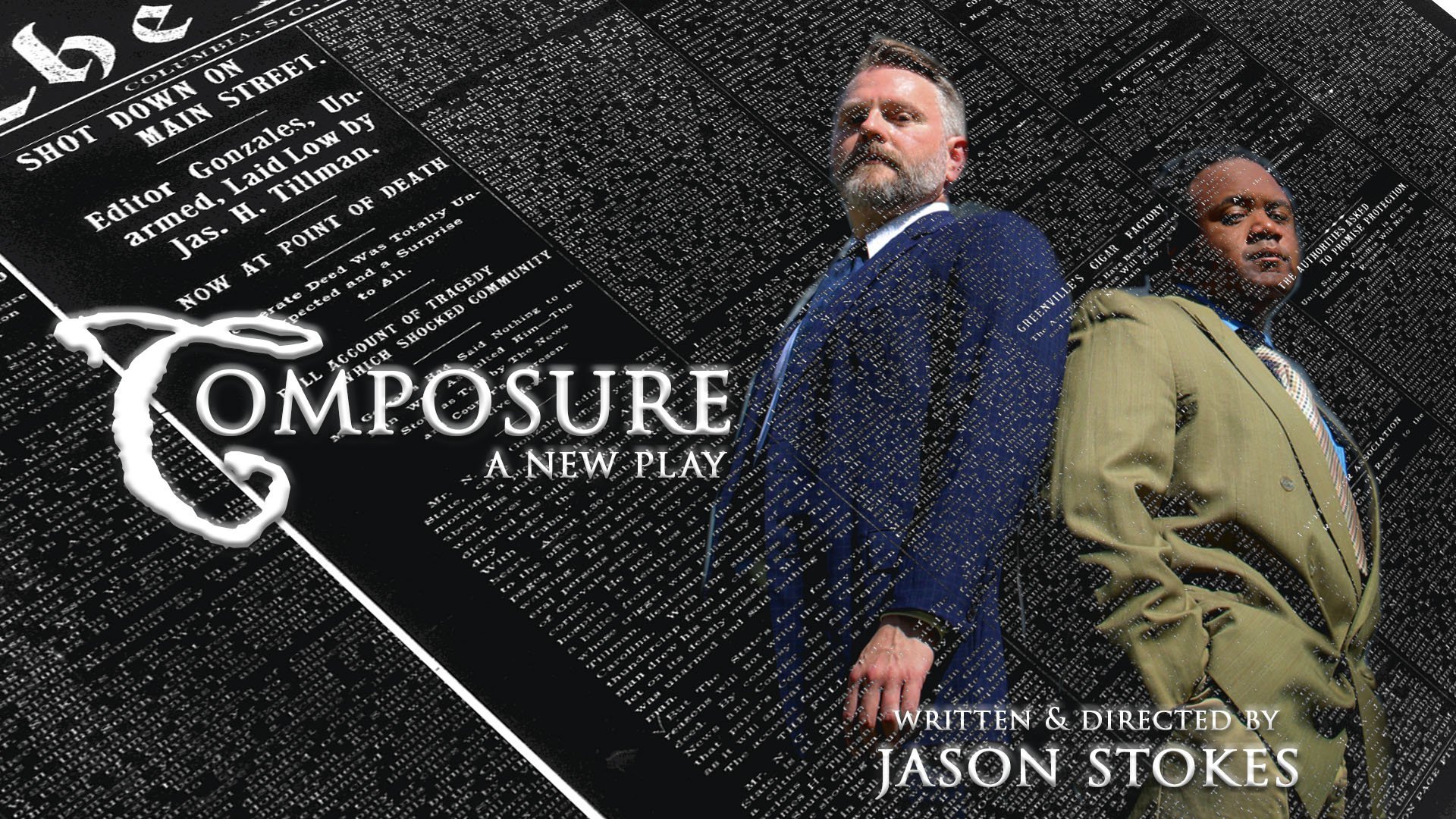In the second of Trustus Theatre’s True Crime Rep series, the new play, House Calls—The Strange Tale of Dr. Gale by Charlie Finesilver, opened on Thursday night, August 18th. Directed by Ginny Ives, House Calls is the story of Dr. Ian Gale, an ostensibly successful psychiatrist who, in the 1970s, lived and worked in Columbia, SC by day, but by night burglarized the homes of 100 or more of his fellow Soda Citizens. Over the course of almost a decade, Gale, who was also an attorney and author, stole valuables amounting in worth to a half a million dollars, hiding the treasure away in a locked room in his home. He was finally caught and convicted in 1979 and served 15 years in prison. In 2017 and at 79-years-old, Gale shot himself in the head and set his home afire, taking many secrets and explanations to his grave.
Finesilver became fascinated with the story upon reading about Gale’s death in the newspaper and developed his own interpretation of contributing events into the original stage play which, like last week’s Composure by Jason Stokes, was intended to be staged in August 2020, before Covid shut the theatre down for health reasons.
Although it was originally intended to be directed by Lindsay Rae Taylor, Ginny Ives stepped in as director for the premiere of the show. Ives is a graduate of USC Aiken and has been a company member at Trustus since 2019.
Jeff Driggers was cast in the part of Dr. Ian Gale at the request of the playwright who had seen Driggers perform in another show and thought him an excellent choice for the part. Driggers, whose background lies primarily in Shakespearean roles, physically plays a bit young for the part although he does strive to create a mature presence that he consistently maintains throughout the play. Driggers is a lot on the stage, and we would have liked to have seen just a bit more variation in his character, more nuance to balance the bigness of his vocal expression, given that he is on stage almost constantly. Even so, Driggers shows fidelity to his interpretation of the part throughout his lengthy stage time.
Driggers is primarily cast against veteran actor Chris Cockrell (Inspector Anderson), one of Columbia’s most accomplished performers, and Deon Turner (Inspector Cummins), both of whom skillfully embody the roles of 1970s era gumshoes with finesse. It was also a pleasure to see Clark Wallace on the stage in the role of Solicitor Egan, reminding audiences of how much this experienced actor brings to a project.
Both Jordan Postal (Stacey) and Kathleen Pennyway (Jodi) gave astute and complex performances which promise more to come from both young women. And Sheldon Paschal, in the role of Gale’s memory of his mother (Vera) was decidedly creepy and intimidating.
Sharing the foundation of a set with last week’s premiere, Composure, once again we have Danny Harrington to thank for a set that is both functional and architecturally appealing. Sound and lights were fine and costuming by Andie Nicks was judiciously designed and era appropriate.
While in all likelihood Finesilver thoroughly researched the subject matter, a substantial part of the story was still conjecture by necessity and at the discretion of the playwright’s imagination in terms of what direction it would go. It would be interesting to know whether there were clues that led the author to point fingers at Gale’s mother Vera, so menacingly portrayed by Paschal, for the doctor’s mental instability or whether the playwright simply adhered to the old Freudian trope of blaming the mother whenever a son failed. In a hearing that resulted in the revoking of his medical license it was noted that Gale prescribed amphetamines for a romantic interest as well as himself, had multiple false IDs, and exhibited other behaviors that indicated a sociopathic if not psychopathic personality disorder. Ideally the conflict depicted in the action would have led the audience to additional possible explanations for the protagonist’s mental affliction, outside that of a domineering mother.
Certainly, like all new projects, House Calls would benefit from additional workshopping to sort out the possibilities for plot direction, and the pacing could be increased and the motivation of the lead actor finetuned. Compared to last week’s premiere by Stokes, House Calls may be less sophisticated in its storytelling methodology but, like its series companion Composure, which continues to run alongside it until August 27th, both have exceedingly strong bones and are triumphs for Midlands’s area theatre arts in that they were skillfully presented before enthusiastic audiences by accomplished casts and crews in a professional theatre.
Congratulations once again to the playwrights, casts, and crews for both performances and to Trustus theatre for trusting Columbia audiences to support new theatre art by talented local playwrights.


